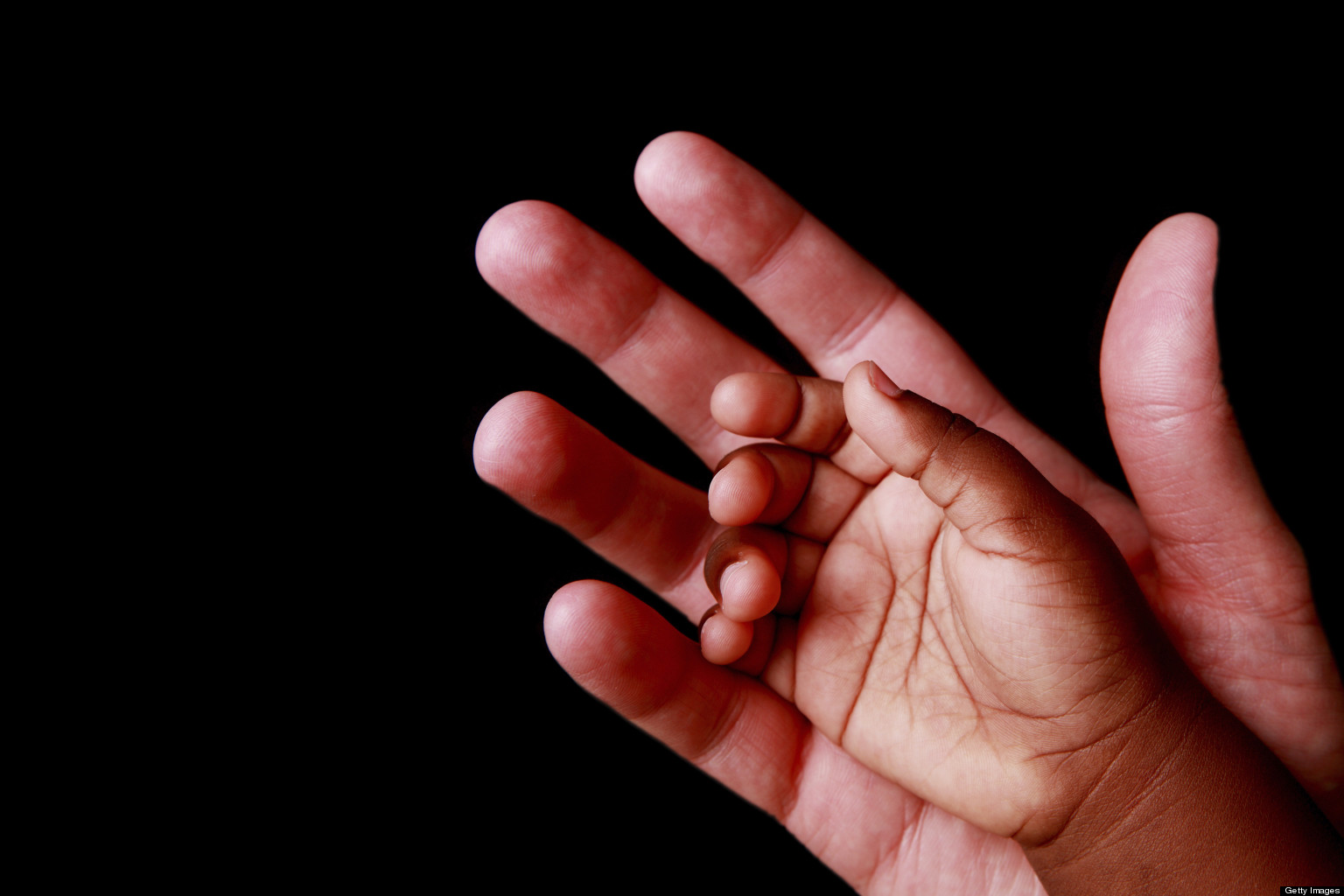In the time of the Prophet, children were adopted but still retained the name of their birth parents. This wisdom, passed to Muhammad (PBUH) in a revelation, allowed the child to be cared for by his new adoptive parents but still retain a connection to his origin as well as any pertinent medical or family information he needed. Today, though, adoptive children can travel between states, across the globe and between countries.
Furthermore, modern adoptive laws require that all records of the child’s origin either be destroyed or filed in secret files. However, rather than tap into the wisdom of the Muslim way of adoption to solve the medical problems associated with their method, agencies have started to use genetic testing as a way to unanimously file medical information on adoptive children. Even though, this information, once filed, has the potential to harm the child rather than serve them in life.
Before Islam prohibited legalized adoption, Prophet Muhammad (PBUH) adopted Zaid ibn Harithah. He became Zaid ibn Muhammad. Then it was declared “…nor has He made those whom you assert to be your sons your real sons; these are the words of your mouths; and Allah speaks the truth and He guides to the way.”
“Assert their relationship to their fathers, this is more equitable with Allah; but if you do not know their fathers, then they are your brethren in faith and your friends; and there is no blame on you concerning that in which you made a mistake, but [concerning] that which your hearts do purposely [blame may rest on you], and Allah is Forgiving. Merciful.” (Surat Al-Ahzab 33: 4-5).
Muslims therefore can adopt children and raise them as their own but the child must remain legally the child of their birth parents. Following this declaration Zaid reclaimed the name of his father, and in deed, Prophet Muhammad (saw) continued to care for and advise him (Arafat, p.1, 2).
This continues today. Even in the midst of their plight, the surviving Afghans take in children whose parents have died (Rall, p.2).
In the case of the Muslim Balkans country of Bosnia and Herzegovina, hundreds of children have been rescued and “adopted” by church organizations in Italy, Germany and France for example, when no Muslim country opened their doors to these children (Arafat, p.1). Across the globe, in fact, millions of children are adopted each year.
However, this process causes another process years later – the search for the adoptive parents. The National Adoption Information Clearinghouse estimates over 60,000 Americans search for their birth parents or their birth-child. Judges will only accept sufficient grounds to open sealed adoption records.
There is no unifying federal legislation that governs information access rights of birth parents or other birth-relatives and adoptees. Some states use an affidavit system whereby the concerned parties can place a prior written consent for the release of identifying information into the adoption file (Burns, p.1-3).

The US has the largest number of children adopted per 100 live births.
Even if they release records to the adopted child they may not contain all the information they are seeking. In the case of recessive or carrier genetic disorders, doctors desire an accurate diagnosis.
But if the birth parents are aware at the time of giving their child up for adoption, they also had to confront the decision of how much medical information they should pass on.
Some parents chose to pass on little or no information in the fear that families would reject adopting their child. In some cases, the birth parents themselves might not learn until years later that they have a genetic disorder. In such cases it is equally hard for the birth parent to trace their child. (Burns, p.1). Because of these problems adoption agencies have greatly increased the medical information requirements of adoptive children.
This information is used to determine the type of medical screening required for the child. Information is also a must from the birth-relatives, including ethnic origin and racial heritage as in the case of the childhood neurological disorder Tay-Sachs experienced by Ashkenazi Jews (Lauren, p.1). In some diseases, pre-knowledge of the disease could prevent onset of the disease. And in modern adoptive procedures this may even involve genetic testing.
However in case of rejection, setting up genetic-testing to predetermine adoption places the child under a state of anxiety, causes low self-esteem and uncertainty for the future.
They may also be rejected for jobs or insurance later in life if this “handicap” is entered onto their records. If they have a recessive or carrier genetic disorder, there is no guarantee that it will manifest, but being on their record can still cause them harm.
Furthermore, increased tests and treatment regimes hold no proven benefit. For example pre-symptomatic diagnosis of cystic fibrosis has yet to demonstrate any medical benefit. It will only reap the burden of increased medical costs and unnecessary treatments.
The child will feel defective, guilt-ridden or misplaced. Adoption in Islam is the pleasure of rearing a child who may not legally be adopted but holds the psychological satisfaction in the caring of a child as ones own. As a mother giving birth, one has no guarantees to the future health of the child. One does the best one can. Genetically testing children interferes with this process (ASHG, p.1-4).
Rather than be a solution, the facts of genetic testing are more realistic. Genetic testing increases the range of disorders we can diagnose. But, we can achieve the initial diagnosis by other methods and it’s dependent on the physician’s ability to interpret accurately. One has to be fully conversant with the probabilities of nature (AAP, p.1).
Moreover, some ethicists argue that the recommendations of the American College of Medical Genetics should include homes where families are prepared for any special responsibilities and preemptive measures like diet can be taken (Reuters, p.1). Even though this argument sounds reasonable, it falls short when the child isn’t adopted for a disease that no one can truly say will manifest and burdens the child that is adopted.

Adoptions can occur either between related family members, or unrelated individuals. Historically, most adoptions occurred within a family.
At the end of the day adoption is not an arena suitable for the idea of genetic testing. As Sayed Mumtaz ‘Ali argues “The motivating factor behind the Muslims quest for knowledge in the scientific fields was primarily to understand the creation of Allah (swt) so as to be drawn closer to their Creator. It was never their aim to exploit nature selfishly nor to dominate it as rivals to Allah (swt) nor to exert control over life and death” (‘Ali p.11).
This article is from Science’s archive and we’ve originally published it on an earlier date.
References:
- ‘Ali, Syed. Mumtaz. “Biotechnical Parenting”. 1-13. 01/16/02.
- Arafat, el Ashi. “Islam and Adoption”. Muslim World League. 1-3. Articles, al-muslim.org. 01/16/02.
- AAP. “Molecular Genetic Testing in Pediatric Practice: A Subject Review (RE0023)”. Pediatrics 106:6(2000) 1494-1497. 1-7. 01/16/02.
- ASHG. “The Genetic Testing of Children”. American Society of Human Genetics 57(1995) 1233-1241. 1-13. Faseb.org. 01/16/02.
- Burns, Joan. “Adoption, Birthparents and Genetic Information”. 08/12/00. 1-4. Resources. Genetichealth.com. 1.16/02.
- Lauren, John. “Breast and Ovarian Cancer: Genetic Diseases in Ashkenazi Jews”. 1-4. Genetics: Ashkenazi Jews. Genetichealth.com. 01/16/02.
- Rall, Ted. “What Americans Can Learn from Afghans”. 12/03/01. AlterNet.Org. 12/08/01.
- Reuters Medical. “Ethicists Question New Guidelines Pre-Adoption Genetic Testing”. American Journal of Medical Genetics 104 (2001) 214-220. 12/20/01. 1-2. Allergy. Medscape.com. 12/23/01.
